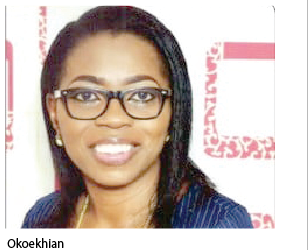Blindness, the loss of vision, is becoming a public health concern as the World Health Organization (WHO) in 2019 estimated that about one billion people are living with preventable vision impairment globally.
In Nigeria, research has shown that about 4.2 million adults above the age of 40 years have moderate to severe visual impairment or blindness. In other words, four out of every 100 adults over 40 have moderate or severe visual impairment in Nigeria.
The chairperson, Nigerian Optometric Association, Lagos state Chapter, Dr. Gloria Okoekhian said major causes of avoidable blindness stem from the lack of access to effective ophthalmic services, such as cataract surgery, the screening for, and treatment of, diabetic retinopathy, or retinopathy of prematurity.
Meanwhile, eight out of 10 causes of blindness are avoidable, if only people pay close attention to their eyes and do the needful by going to check their eyes, she averred.
To prevent avoidable blindness, the chairperson advised regular eye checks, as early detection is key to preventing avoidable blindness, adding that a balance diet like in-take of plenty of fruits and vegetables (green leafy vegetables) fish rich in omega 3 fatty acids and proteins, can help to prevent blindness.
„Engage in regular exercise. This may prevent or help to control diabetes, high blood pressure or high cholesterol and a host of other diseases of the body that can cause serious eye problems. Also, being overweight or obese increases your risk of developing diabetes which invariably poses a risk to developing serious eye problems,“ Okoekhian revealed.
Other good eye health care practices according to her include, avoid playing with sharp objects, avoid instilling injurious substance into the eyes, avoid smoking, exercising regularly, visiting only certified ophthalmic eye hospital if you have eye complaints, wear only prescribed glasses from an eye care provider and checking and controlling blood sugar and blood pressure levels.
To improve access to quality eye care services in Nigeria, Okoekhian suggested training and retraining of Optometrists, especially at the grassroots. „A lot still needs to be done from training to employment, thus we call on the government to create or establish more primary healthcare centers and employ more Optometrists that can take eye care to the grassroots,“ she added.
We also call on the government and policies makers to allocate more funds to eye care to make it more accessible, available and affordable to the populace,“ Okoekhian averred.
Blindness can be prevented or avoided with proper care, the chairperson of Nigerian Optometrists Association, said, while urging Nigerians to make a pledge today to care for their eyes. „Do not let God’s gift of sight go to waste. „Put your vision first. Love your eyes; save lives,“ she said.





